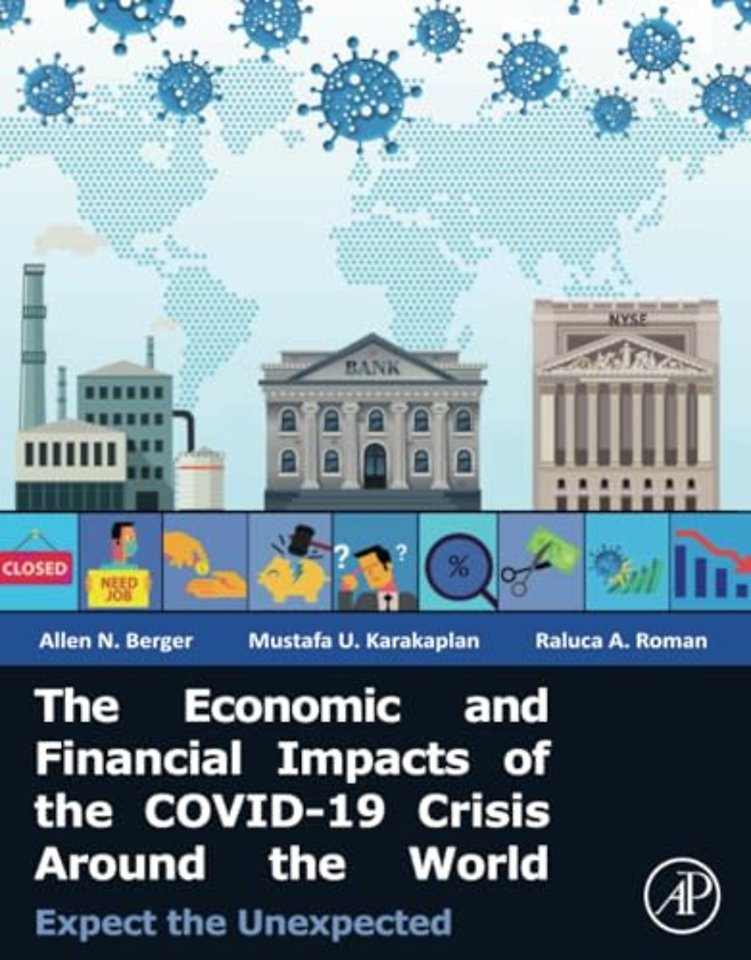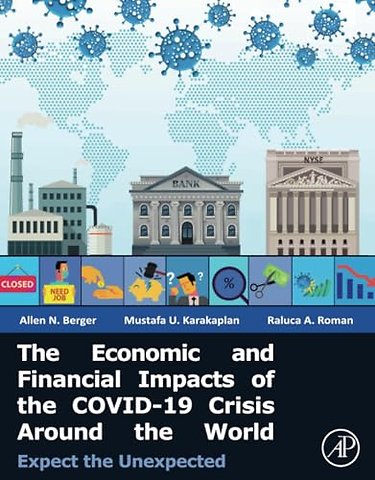The Economic and Financial Impacts of the COVID-19 Crisis Around the World
Expect the Unexpected
Paperback Engels 2023 9780443191626Samenvatting
The Economic and Financial Impacts of the COVID-19 Crisis Around the World: Expect the Unexpected provides an informed, research-based in-depth understanding of the COVID-19 crisis, its impacts on households, nonfinancial firms, banks, and financial market participants, and the effectiveness of the reactions of governments and policymakers in the United States and around the world. It provides reflections and perspectives on the social costs and benefits of various policies undertaken and a toolkit of preventive measures to deal with crises beyond the COVID-19 crisis.
Authors Allen N. Berger, Mustafa U. Karakaplan, and Raluca A. Roman apply their expertise to the research and data on the COVID-19 economic crisis as well as draw on their own rich research experience. They take a holistic approach that compares and contrasts this crisis with other economic and financial crises and assesses economic and financial behavior and government policies in the booms before crises and the aftermaths following them, as well as the crises themselves. They do all this with a keen eye on “Expecting the Unexpected future crises, and policies that might anticipate them and provide better outcomes for society.
Specificaties
Lezersrecensies
Inhoudsopgave
Rubrieken
- advisering
- algemeen management
- coaching en trainen
- communicatie en media
- economie
- financieel management
- inkoop en logistiek
- internet en social media
- it-management / ict
- juridisch
- leiderschap
- marketing
- mens en maatschappij
- non-profit
- ondernemen
- organisatiekunde
- personal finance
- personeelsmanagement
- persoonlijke effectiviteit
- projectmanagement
- psychologie
- reclame en verkoop
- strategisch management
- verandermanagement
- werk en loopbaan

